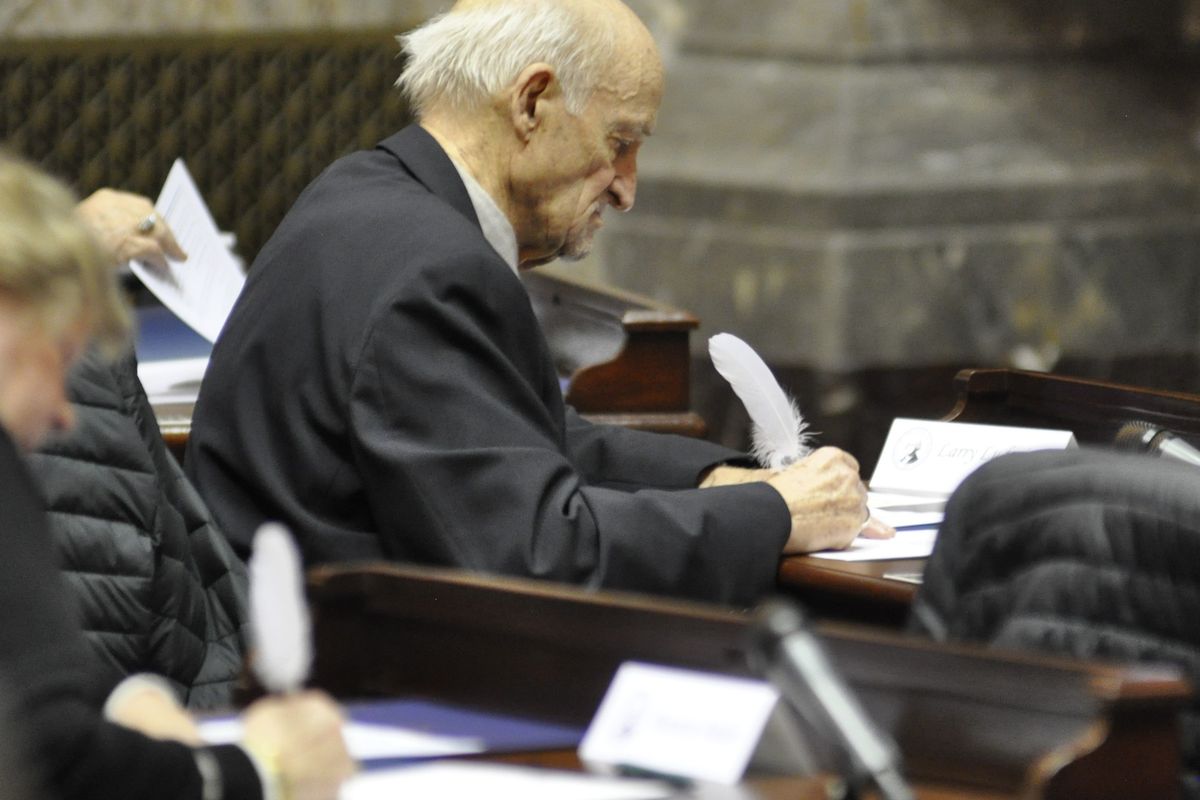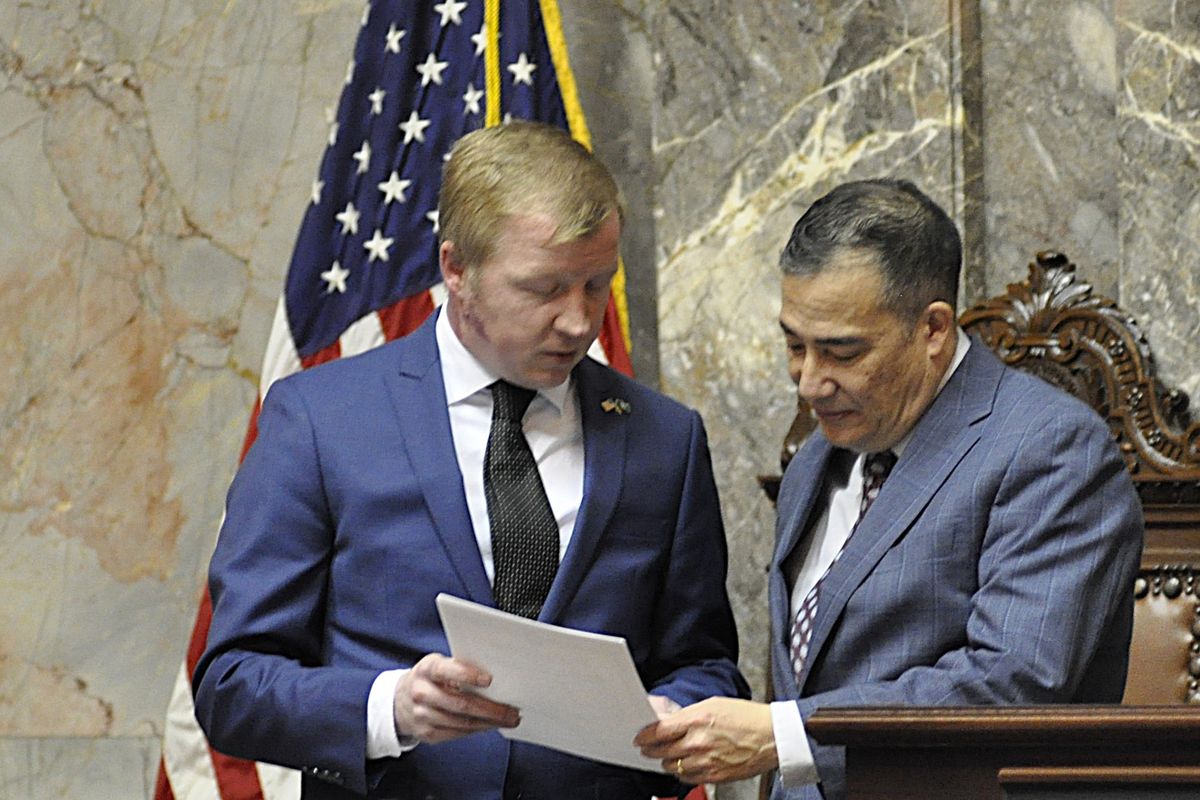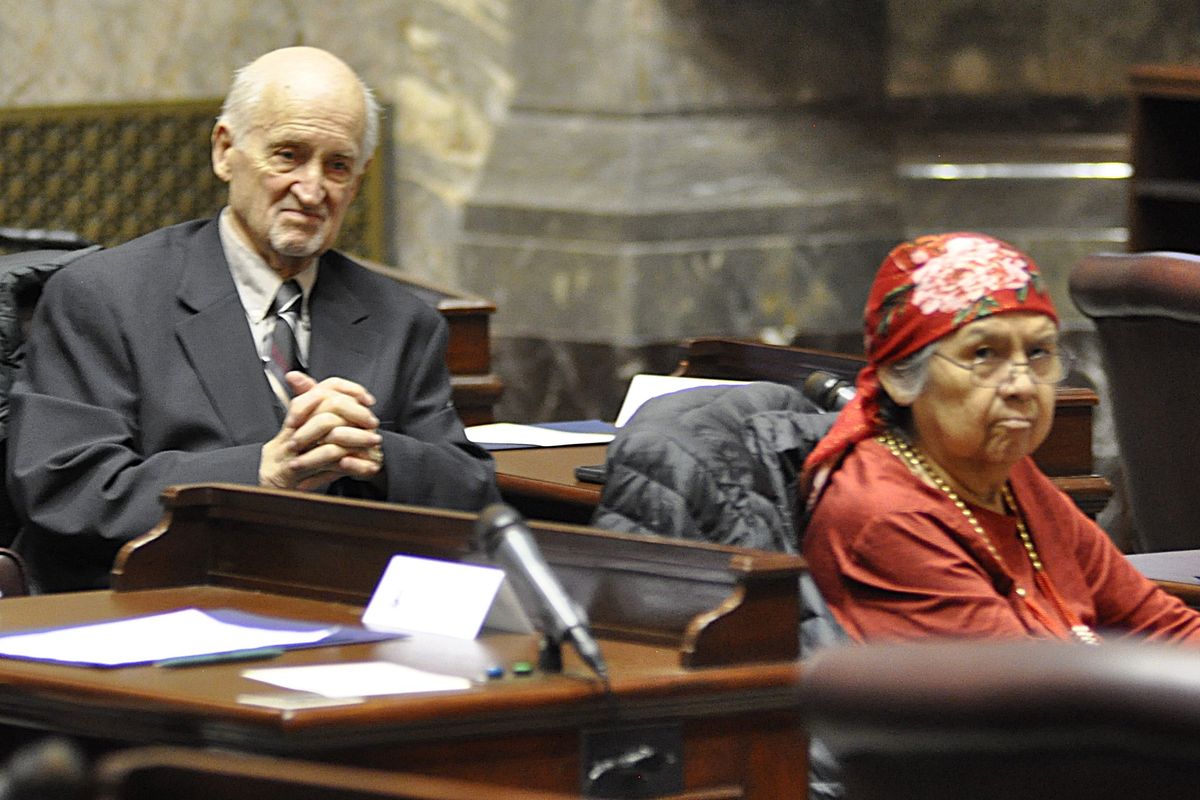Washington electors in Electoral College cast votes for Harris, although some want new system
Electors Larry Ludgwig, of Stevens County, and Patricia Whitefoot, a member of the Yakama Tribe, listen to comments from other members of the Washington Electoral College on Tuesday in Olympia. (Jim Camden/For The Spokesman-Review)
OLYMPIA – With the result of the presidential race not in doubt, either in the state or the country, the 2024 Washington Electoral College was partly a celebration of democracy as it currently exists, partly a call for a change that would eliminate such gatherings in the future and occasionally a chance to express partisan hopes for a better outcome in 2028.
By formally voting to give Washington’s 12 electoral votes to Democratic presidential nominee Kamala Harris and vice -presidential nominee Tim Walz the state’s electoral votes, the electors were fulfilling a “sacred trust,” Gov. Jay Inslee told the electors and alternates gathered Tuesday in the marble-walled Senate Chamber.
“You are participating in one of the great events of our democracy,” Inslee said. “Democracy is only as good as the people willing to defend it.”
Their actions would “formally begin the transition” from one administration to another that will be final next Jan. 20 with the inauguration, Secretary of State Steve Hobbs said.
In brief speeches after their votes, several electors echoed the feeling of being part of the constitutional process for electing the president, even though they were filling out their ballots for the person who lost.
Elector Larry Ludwig, who lives in rural Stevens County south of Kettle Falls, said he was honored and humbled to be there – but not so humbled that he couldn’t add a “Go Cougs” and a “Go Eagles” in his remarks for the two largest state universities in Eastern Washington’s 5th Congressional District.
Rural Democrats may be a minority in the district, but their votes helped cement statewide victories for the party’s slate of state executive candidates, he said.
This year’s Washington electors had a record three members of Native American tribes. A copy of the state’s electoral votes will be sent to the National Archives, which also holds the treaties many tribes signed in the 1850s with Territorial Gov. Isaac Stevens, Patricia Whitefoot, a member of the Yakama Tribe, noted.
Native Americans were not allowed to vote in Washington for the president until more than 100 years later, in 1958, said Whitefoot, who brought children and grandchildren with her to witness the event.
Lona Wilbur, said members of the Swinomish Tribe like her grandparents couldn’t vote when they were ordered off their lands during World War II to make way for military installations. Her father couldn’t vote when he served in the Korean War; her mother was pregnant with her the first time she was eligible to cast a ballot.
Democrats had hopes that America would elect a woman president for the first time, Wilbur said, but that didn’t happen.
“We can come back in four years,” she said. “Tomorrow we will start new.”
The 12 votes cast by the electors represent more than 2 million ballots marked for Harris by Washington voters, said Elector Terra Gallagher, who called the current presidential process “a flawed system” because an elector in a large state like California may be representing many times more voters than in a small state like Wyoming.
“I think we should abolish the Electoral College,” Gallagher said, adding it should be replaced by a system that relies on the nationwide popular vote. “We know it’s a problem but where is the will to change?”
Ludwig, 84, campaigned hard to be chosen as an elector at the state Democratic convention. He’s been active in Democratic politics for decades, but this was his first time serving as an elector.
He agreed with some of his fellow electors that the Electoral College should be abolished but he was glad to have been part of Tuesday’s meeting.
“In the meantime, I’ll support what we’ve got and make it work,” he said.


